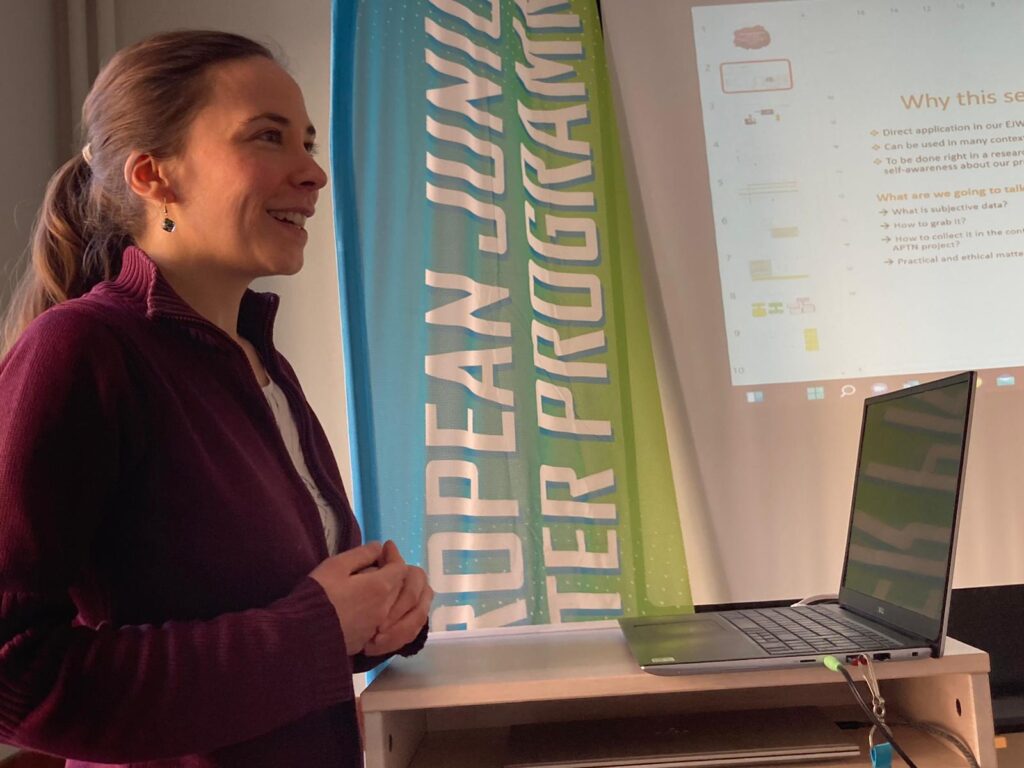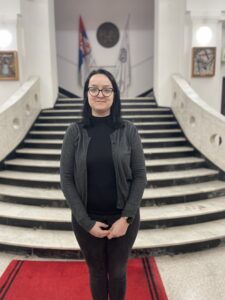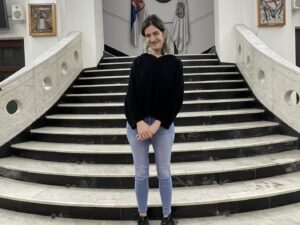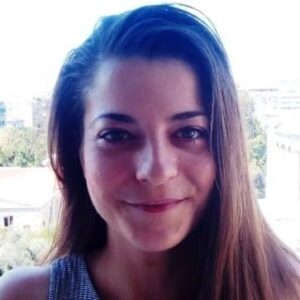I became interested in EJWP to raise the profile of the European part of my work. I’m focused on increasing European projects as part of my career path at ACTeon Environment in France. I also wanted to grow my experience to see the bigger picture, and meet people from different backgrounds and disciplines to learn from. I really try to maximize what is given to me.
Innovation is one of our strongest values where I work, so learning to work together better at various levels is critical because water is very transversal. We need to think more about water management in social and political perspectives in determining what we need – then the technical issues will follow. I see my mission as bringing more social science to the water sector to help with solid solutions. Discussing approaches with other European social scientists is vital, and I think I can use my EJWP network to take our work to another level.
My studies were in humanities as a university undergraduate in France, then a master’s in sociology in Canada followed by a second master’s in water policy. In between, I spent one year as a teaching assistant for French language in Moscow. An internship in France at ACTeon led to where I am now, working as a project manager on French and European projects.
I’m still learning to navigate EJWP. The big part of our group interaction takes place in the projects, which are real learning experiences in strategizing on solutions. It is a safe place in which we can experiment and grow through direct feedback. This can be different from office environments where you are expected to present in a certain way.
I give feedback in my company for my work colleagues benefit from EJWP. I conduct monthly meetings to share what we are doing in the programme, and what is surprising or difficult. This is also a great way for me to self-reflect. My colleagues have questions and give me advice, a bit like a good support group. This helps – and brings a positive energy into the work life at my company!
The live EJWP training weeks are great, but the interactions with EJWP colleagues between have become surprisingly important. Meeting each other in our different countries helps understanding, also through bonding in informal moments to see each other as human. The project that we’re finishing now, from the University of Niš in Serbia on water and urban design with an assessment tool, has really happened through interdisciplinary work. We had a warm welcome at the training week in Niš and interacted with people who manage water there, so we could see closely.
Personal development in EJWP has been a discovery in self-reflection with the trainer and group. With this, I’m better at identifying the roots of problems and making better decisions based on the relevant evidence. We’re not all perfectly adapted to our work environments, so this helps us adapt to each other and to our stakeholders.
I took part in the Water Europe (WE) knowledge week in the session on the Horizon Europe calls to discuss with WE members about their participation in the consortia. It’s nice to have trainings in EJWP that can be applied to H2020 projects. One thing that I like about working on EU projects is the state of mind of tolerance working with diverse groups. We can feel as Europeans that we agree on certain values that create our unique culture.
In an ideal world, there would not be a water sector, but water would be in other sectors, like energy, eco-preservation, and agriculture. We should consider water in everything we do, as we are all part of an ecosystem. It might be easier for engineers to vision a water sector, but for others working on social aspects and policy, it can be a challenge. We are facing climate change, but are struggling to collectively solve climate problems, because they are too big and complex. We should prioritize to think about what’s important as a society. It can be a sensitive topic, but we need to discuss and give ourselves a chance to face what is coming. I think we need to continue to invest in bringing social science into water projects. The future is transdisciplinary.






